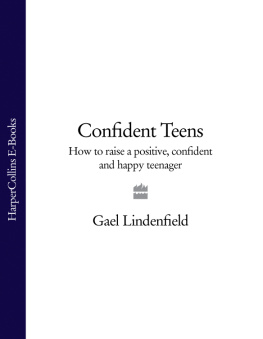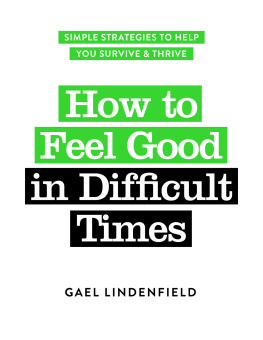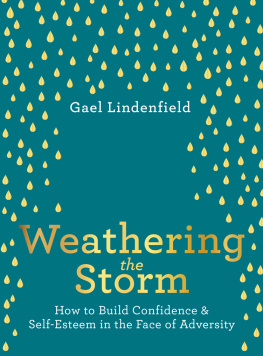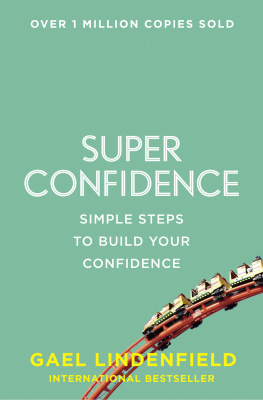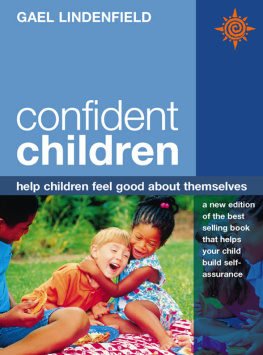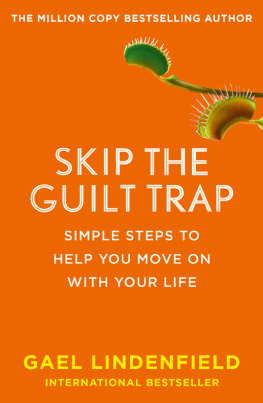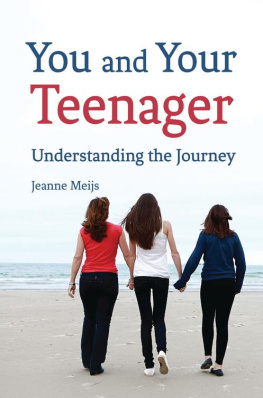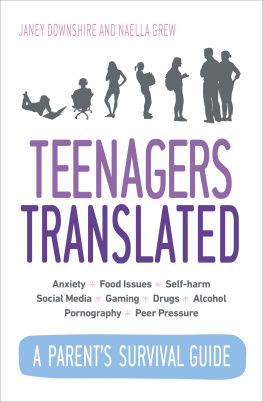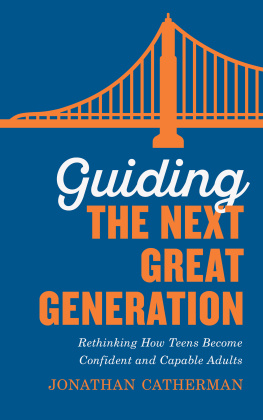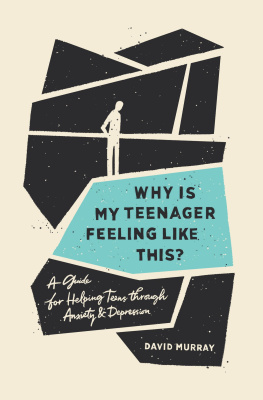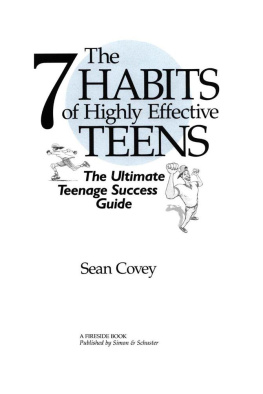To my husband, Stuart, who has been the most supportive co-parent I could ever have hoped to have. His optimism, down-to-earth wisdom and sense of fun helped transform many a moment of angst into a positive, uplifting experience.
Would you believe that it has taken me a full six years to summon up the confidence to write this book?!
And that is in spite of:
- having re-built my own confidence from the rockiest of rock bottoms
- achieving a successful career for the past 25 years by helping others to build theirs
- receiving streams of letters and calls from grateful readers of one of my earlier books, Confident Children
- being asked countless times by parents, teachers, youth workers and editors to write this book
and, most importantly:
- having launched two highly confident teenagers into the world.
So, what was your problem? you might well ask. In a nutshell, I felt overwhelmed by the responsibility of taking on such a vital task, knowing that never in a million years could it be done perfectly!
Then, thanks to a flash of insight, I realized that was exactly how so many parents of teens currently feel.
The actual task of building enough confidence in children to enable them to thrive in todays world is just as daunting as writing a book on the subject. The difference is that most parents have to tackle their task without the benefit of hindsight or professional expertise and they dont have the luxury of saying No!
So applying the magic of the Just Do It! approach, I started to write. Once in the flow, my problem changed. I found that I had enough confidence and material to write five volumes! The big problem facing me now was how to contain myself and my subject. I knew I had to condense my thoughts into one slim book because how many parents have the time and energy to read much else? I hope that you will find this book easier to read and more practical to use than the encyclopaedia that could have emerged!
Above all, teens need confident parents to set them an inspiring example. Therefore, one of my main aims in writing this book is to provide a self-help tool to build and boost your confidence as a parent. So, although for obvious reasons the content of the book centres around difficulties you may encounter, please dont lose sight of the positives. The fact is that the vast majority of parents have a great time parenting their teens. I can honestly say that the years I spent with my teens were the most exciting and rewarding of my life. Of course there were some tantrums and traumas I expected that. (Arent the dire warnings about adolescent angst and anti-social behaviour everywhere?) But what I didnt expect was the amazing degree of fun, companionship and life-broadening experiences that totally outweighed the difficulties. I hope this proves to be your experience of parenting your teen as well.
If from time to time it doesnt, dont take all the blame upon yourself. Doing this will neither help you nor your teen. Although as parents we have a powerful role to play in building the confidence of our children, we have to accept that many other factors can be highly influential as well. It is hard enough for adults to feel good about themselves in our current world. More and more people are feeling daunted by the competitive pressure that globalization has brought and the ever-moving goalposts in the world of work. At the same time, vast numbers of us are feeling personal failures. It is proving so hard to keep on top of the hectic lifestyle we lead and live up to the images of perfection that the mass media floods our minds with. Seeing so many adults around them losing it, is it any wonder that teenagers often feel that they have little chance in the jungle either?
In addition, a number of you will have inherited extra obstacles. Your child may, for example, have a genetic pre-disposition which has stacked the cards against them. A shy or volatile temperament or an intellectual or physical disability can make it much harder for a child to achieve their potential and integrate into their community. Alternatively, your family may have had to struggle with social or economic disadvantages, which none of you asked for or deserved! Teenagers from minority ethnic groups or from poor communities often have good reason to have less self-esteem and also have fewer chances to acquire the skills that help build confidence.
Finally, please also remember that no one but a saint could sail through these challenging years without frequently running into problems and breaking many of the Golden Rules, which I discuss later. Confident parents are not perfect people. They know they have faults and make mistakes. But they persevere in spite of their own imperfections and setbacks. They do not remain daunted by challenges for long when they decide to go for it, they embrace the challenges and enjoy them!
Raising Confident Teens:
Everything You Need to Know!
Shes an intelligent, talented girl and a pleasure to have in the class, but she could do so much more if only she had more confidence.
Yes, he does get picked on. If he was a bit more confident theyd probably leave him alone.
Why didnt she tell me this herself? If Id known before I could have helped. The trouble is that shes so quiet. If shed only speak up more in class.
Theres nothing stopping him but himself. Hes got to believe he can do it. Hes too much of a worrier.
These are the kind of remarks that have sent parents running to see me. Their cry of despair and guilt is almost invariably the same:
I know she needs more confidence, but what can I do? Ive tried everything. We couldnt love the children more than we do. Its not that we want them to be super-successful we just want them to be happy and give them the best start in life. Where have we gone wrong?
The first task, as in any kind of problem-solving process, is to stop beating ourselves up about what we have or havent done. The second is to break down what appears to be an impossibly giant problem into manageable proportions. If you promise to take care of the first, I will now attempt to help you with the second!
Several years ago, after carefully observing the characteristics and behaviour of confident and not-so-confident people and studying the research, I decided that self-confidence is actually a package. In that package we would expect to find a good-enough supply of eight key ingredients. Some of these are personal qualities, which feed our inner confidence, and others are learned social skills, which enable us to handle the outside world in a confident manner. If we are lucky enough to have a good-enough supply of all eight of these ingredients, we seem to have an extra boost of personal power and feel and appear to be what I call Super Confident.
8 Key Ingredients of Super Confidence
Inner confidence:
- self-love (adopting self-nurturing behaviour and lifestyle)
- self-knowledge (reflecting on feelings, thoughts and behaviour)
- clear goals (having a strong sense of purpose)
- positive thinking (expecting and looking for good experiences and outcomes)
Outer confidence:
- communication skills (communicating effectively with people)
- self-presentation (looking the part of a confident person)
- assertiveness (expressing needs directly and insisting upon ones rights)
- emotional control (keeping the upper hand on emotions)

